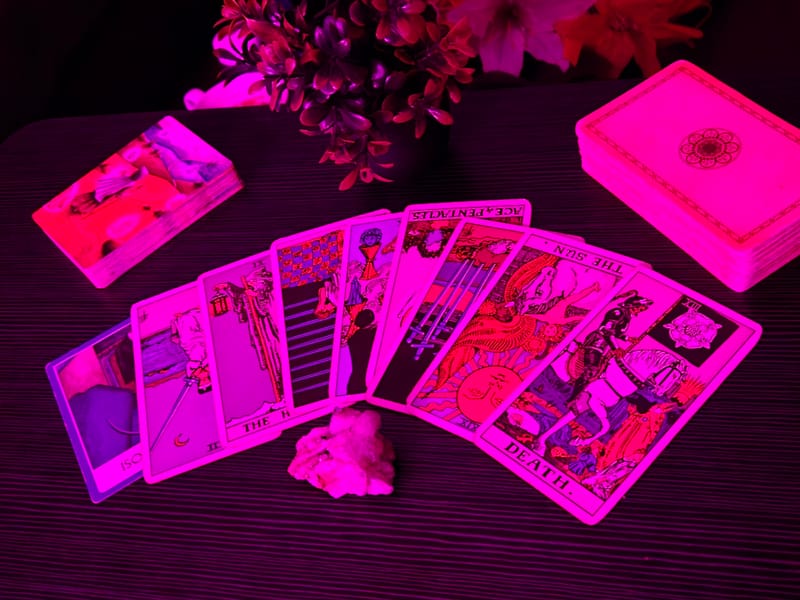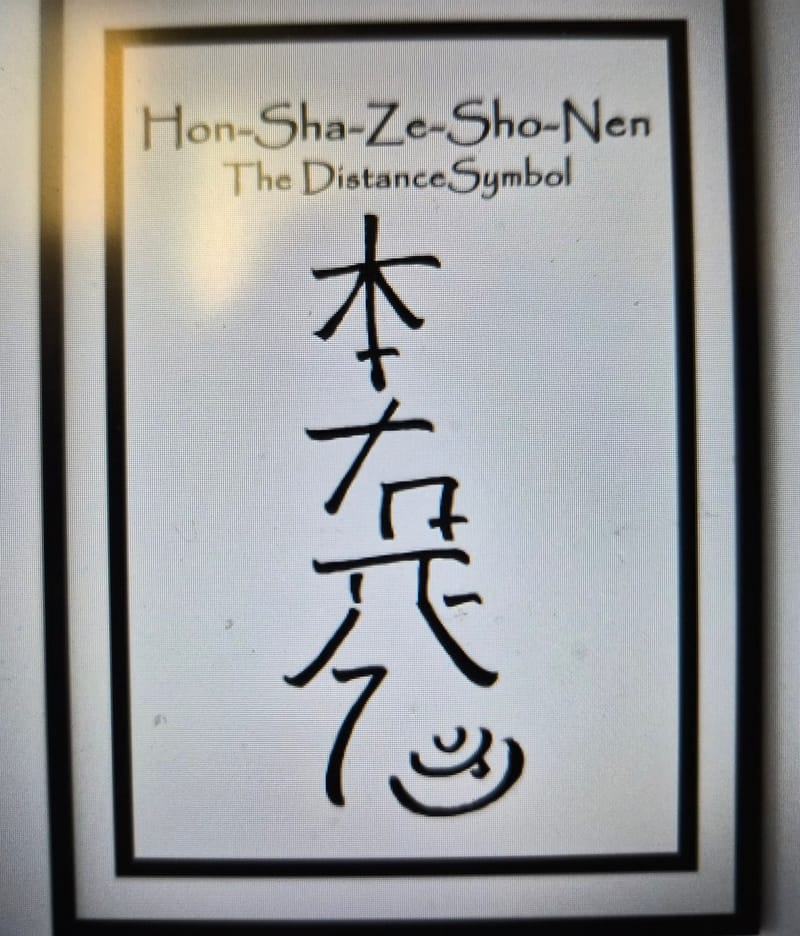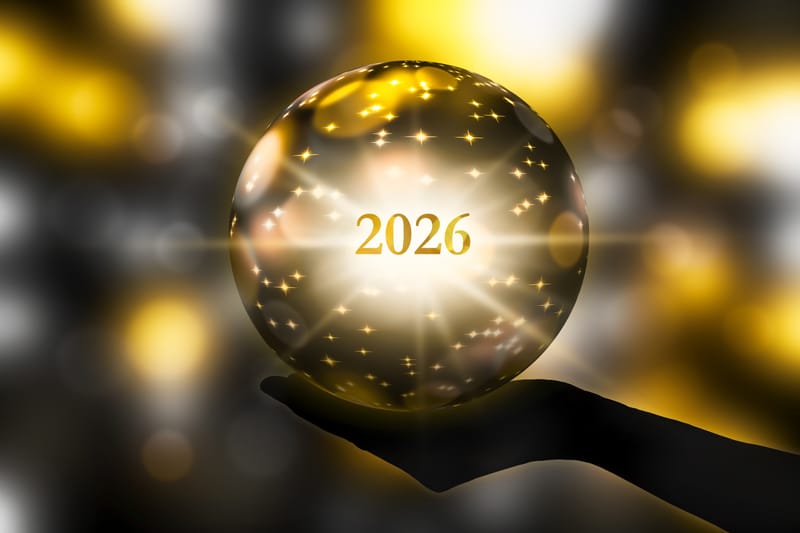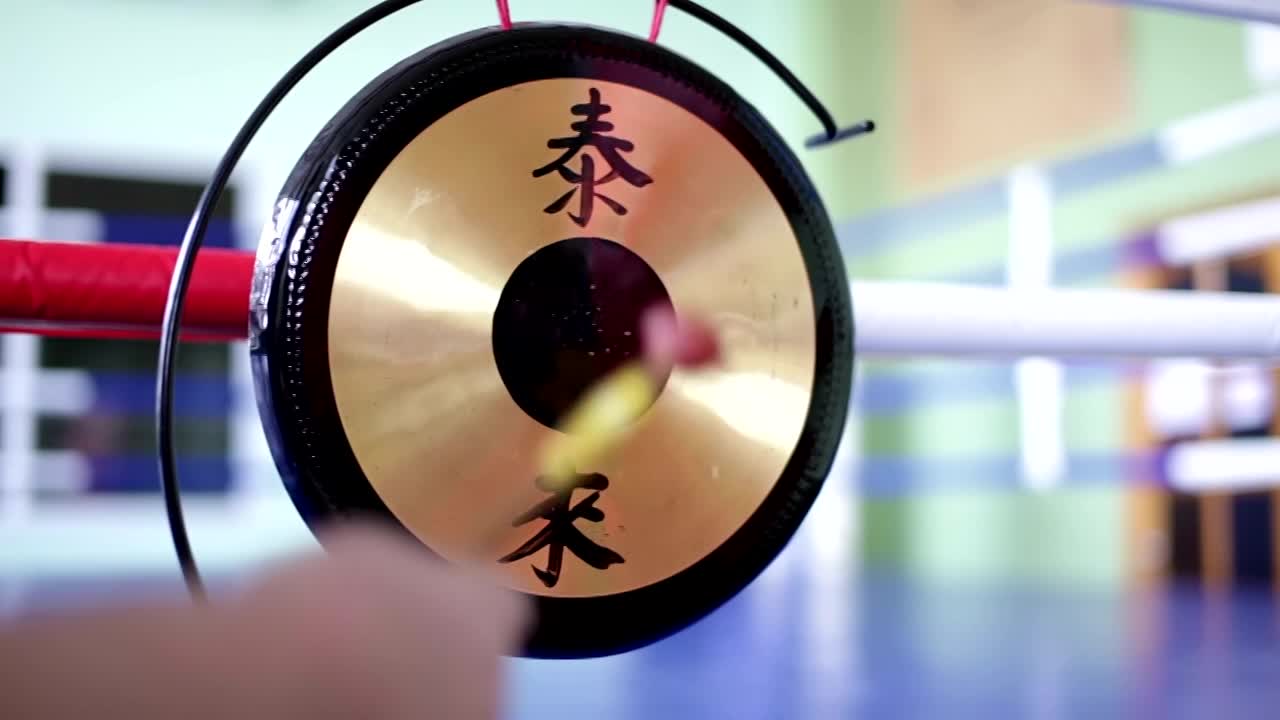Dear Esteemed Audience,
I am Cheryl, a passionate and certified Reiki Professional with five transformative years of experience. As a Certified Life Transitioning coach, Energy Reader. I harness various spiritual modalities to empower individuals like you. I am a native New Yorker. I've dedicated my practice to offering professional Reiki sessions and insightful tarot readings, both remotely. My assessments are uniquely crafted to unveil the intricacies of your strengths and weaknesses, illuminate your career prospects, enhance relationship compatibility, and guide pivotal life decisions. Having performed numerous personality assessments for individuals and families, I have consistently witnessed remarkable accuracy in the insights provided. When you choose to receive an assessment from me, you can anticipate powerful revelations that will equip you to make informed decisions and catalyze meaningful changes in your life.
It's important to understand that while I provide the guidance and knowledge you need, the journey of transformation is ultimately in your hands.
Please be aware that my services are intended for a mature audience seeking profound self-discovery.
If you’re ready to explore your life path and uncover the energies and numbers that shape your journey, I invite you to embark on this extraordinary experience with me. Warmest regards
Cheryl
Contact
- Brooklyn, New York, United States
- +1-(605) 313-5791 - Cheryl
- cheryldnurse1139@gmail.com
- Hours of Operation 3pm---8pm
I am accepting bookings from 3 PM to 8 PM Sundays, Tuesdays, Thursdays, and Fridays. To receive a free copy of my ebook, complete the form with your service request. *Please note: Readings are by appointment only.* Thank you! *Love and Grace*
Services

FINANCIAL MARKETING DEBT SOLUTION CONSULTING
Hi, I'm Cheryl, your friendly PHP Associate Agent #1110874 If managing your debt feels overwhelming, take a moment to click the link below English- https//www.phpdebtsolutions.com/sm Spanish- https//www.phpdebtsolutions.com/sm/sp or reach out to My helpful assistant, Cecelia, at (323) 8723111 She can support you every step of the way. Best regards Cheryl

SERVICES OFFERED: TAROT READING $4O, REIKI HEALING SESSION $60, COMBINATION: TAROT and, REIKI HEALING SESSION $110
Experience the transformative power of a combined Psychic Tarot Reading and Reiki Healing Session! Dive deep into your innermost questions while receiving uplifting energy healing to restore balance and peace. Discover insights, clarity, and a renewed sense of well-being all in one holistic session. Embrace this unique opportunity to connect with your intuition and heal your spirit! Best regards Cheryl

DISTANT REIKI HEALIHNG SESSION
Distant Reiki is about sending life force healing energy across time and space is a practice designed to support overall well-being. This approach operates on the principle that all energy is interconnected, enabling a practitioner to engage with an individual's energy field remotely. The goal is to promote relaxation, alleviate pain, clear energetic blockages, and enhance emotional balance, similar to the benefits of a personal session, but without the need for physical presence. This method offers convenience, particularly for those who may be homebound or residing in different time zones. Sessions are typically scheduled at a mutually agreed-upon time, during which the client can relax while the practitioner channels energy. I use tools such as symbols to employ the effectiveness of the healing process. Best regards Cheryl
Receive my ebook for free in honor of Aquarius Season! if your birthday falls on Jan. 19th-and ends Feb. 18th you can book a complimentary four-minute reading for free or receive my ebook at no cost. Complete the form on the contact me page.
Thank you!
Best regards Cheryl
"Sound Healing
Come Enliven Your Mind, Body, Soul and Spirit. You'll Be Glad You Did!
A gong is a percussion instrument made from a circular metal disc, typically bronze or brass, that produces a resonant sound when struck with a mallet.
The history of the gong dates back to the Bronze Age, with its earliest known origins in Central Asia around 3500 BC, though evidence also points to ancient China and Southeast Asia (particularly northern Vietnam) as early centers of development. Used for centuries in ceremonies, rituals, and musical ensembles, gongs spread from regions like China and Java via trade routes, eventually reaching Europe in the 18th century where they were incorporated into Western symphonic music.
How To Play Polearm ball and Healing Sounds. Geographic centers: Early manufacturing centers were located in what are now China, Indonesia, Burma, and Annam (Vietnam), with the word "gong" itself coming from Javanese. Ceremonial and ritual use: In ancient cultures, gongs were used for communication, signaling events, in religious and spiritual practices, and as war drums. Chinese traditions: In China, the earliest written mention is from the 6th century, and gongs were used in ceremonies and healing rituals. They were also associated with spiritual practices and believed to have healing properties.
Spread and evolution
Migration: Gongs spread through trade routes, reaching other parts of Asia such as Japan and becoming integral to ensembles like the Javanese gamelan. Cultural significance: The gong held significant cultural and status-symbol importance in many Asian families. European adoption: European classical composers began to use the gong in the 18th century, with François Joseph Gossec being one of the first to include a tam-tam (a suspended gong) in a symphony in 1791.
Modern use
Symphonic orchestras: The gong became a feature in Western symphonic orchestras, adopted by composers like Berlioz, Wagner, and Tchaikovsky. Contemporary music and therapy: Today, gongs are used in modern music and have seen a resurgence in popularity for their use in music therapy and wellness practices.
Cheryl xoxo
*Love and Grace*
F.A.Q
What Is This Site About?
What is Reiki?
Reiki is a spiritual healing art with its roots in Japanese origin. The word Reiki comes from the Japanese word (Rei) which means “Universal Life” and (Ki) which means “Energy”. Reiki is not affiliated with any particular religion or religious practice. It is not massage nor is it based on belief or suggestion. It is a subtle and effective form of energy work using spiritually guided life force energy.
Reiki is the life energy that flows through all living things. Reiki Practitioners understand that everyone has the ability to connect with their own healing energy and use it to strengthen energy in themselves and help others. It is believed that a person’s “ki” or energy should be strong and free flowing. When this is true a person’s body and mind is in a positive state of health. When the energy becomes weak or blocked it could lead to symptoms of physical or emotional imbalance.
A Reiki session can help ease tension and stress and can help support the body to facilitate an environment for healing on all levels – physical, mental, and emotional. A session is pleasant and relaxing and is often utilized for one’s personal wellness.
HISTORY
Reiki is associated with Dr. Mikao Usui who is credited with rediscovering the root system now called Reiki. His tradition and methods were passed through several grandmasters of Reiki. Today, Reiki takes many forms, however, The Usui System of Natural Healing is still the form most widely practiced. Practitioners and Master Teachers are trained through an initiation process where Masters pass on their knowledge and expertise to their students.
DESCRIPTION OF A TYPICAL SESSION
A session is usually 60 to 90 minutes long. A discussion will usually take place during an initial session with a Reiki Practitioner. They will describe the session to the client, give the client an opportunity to discuss any particular problems or issues they are experiencing and ask them what they are hoping to achieve from their session. For the actual session, the client will rest comfortably on a massage table on their back with their shoes removed. Reiki can be performed with the client sitting comfortably in a chair as well. Unlike massage therapy, no articles of clothing are removed and a client is always fully clothed; loose, comfortable clothing is suggested. A session can either be hands-on, where a Practitioner will apply a light touch during the session, or hands-off where they will hold their hands slightly above your body. If a client prefers not to be touched they can indicate this to the practitioner before they begin.
The session will then proceed with the Reiki Practitioner moving through specific standard Reiki hand positions beginning at the person’s head or feet. A recipient of Reiki might feel a warming sensation or a tingling during the session or nothing at all but sheer relaxation. The session should be very pleasant, relaxing and invigorating.
WHAT IS IT USED TO TREAT?
Reiki is a great tool for stress reduction and relaxation. Many people use Reiki for wellness. Reiki is not a cure for a disease or illness, but it may assist the body in creating an environment to facilitate healing. Reiki is a great tool to use as a complement to traditional medicine and is practiced in many hospitals and medical care settings.
Many times a client, after experiencing Reiki treatments, will wish to learn Reiki to work with this energy themselves by taking a Reiki I course. This can be beneficial as they may then use this stress reduction and relaxation tool anytime they wish when cost would prohibit it otherwise.
Please visit the web site at https://iarp.org for an abundance of articles about Reiki.
Please Note: Reiki is meant to be used as a complement to traditional care or as a personal relaxation or stress reducing tool. It is not a substitute for qualified medical or traditional care.
The Definition of Reiki
Reiki was developed in the early 20th century by Mikao Usui, a Japanese Buddhist. Influences: Usui's spiritual and educational background included Buddhism and Shintoism. He was also influenced by other healing practices and philosophies.
Non-Religious: Reiki is a spiritual healing art and practice, similar to meditation, but it is not affiliated with any particular religion or religious dogma. Universal Life Energy: The practice focuses on connecting with and channeling "universal life energy," known as "Rei" (universal) and "Ki" (energy). Inclusive: Because it is not tied to a specific faith, Reiki can be practiced and used by people of all religions, or no religion at all, for spiritual and physical healing.
Misconceptions
Not Buddhism: While Usui was a Buddhist, he did not want Reiki to be a religious practice and removed religious elements from it. Not a Cult: Despite having spiritual aspects, Reiki is not a religious system or cult. Cultural Context: In the West, some have tried to obscure Reiki's Japanese origins, even attempting to link it to Christianity, but its foundational roots remain in Japanese spiritual traditions.
Please Note: Reiki is meant to be used as a complement to traditional care or as a personal relaxation or stress-reducing tool. It is not a substitute for qualified medical or traditional care.

